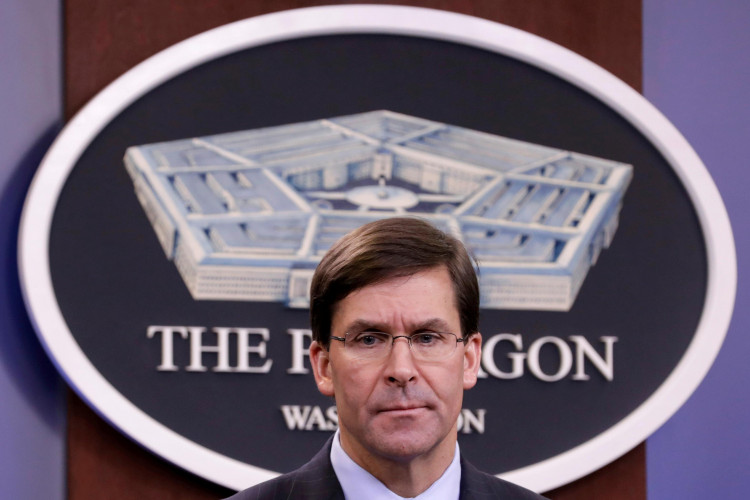A total of 64 US military personnel have been diagnosed with traumatic brain injuries as a result of Iran's January 8 missile attack on US military bases in Iraq, the Pentagon revealed on Thursday evening.
The number has risen from just two days ago, when the United States Department of Defense disclosed that 50 US soldiers had been injured in the attack.
General Mark A. Milley, chairman of the US Defense Joint Chiefs of Staff, said during a media briefing that all 64 victims have been categorized as "mild injuries."
So far, all of the American servicemen have been diagnosed but that could change because brain injury symptoms develop over time, Gen. Milley added.
The number of injured American soldiers has steadily grown from zero to 34 to 50 and to the current figure at 64. "The figures are now increasing," Milley said at the Pentagon late Thursday.
These things, Milley said, are "cumulative" too; adding that if a victim suffers multiple concussions that can manifest itself down the road. "It could be a year or two... we are in the early stage of diagnosis and therapy and we will continue to monitor them - for the rest of their lives," he said.
However, the general said the US military classifies soldiers with mild Traumatic Brain Injury as "not seriously injured."
Of the 64 who have sustained brain trauma in the missile attack, 39 have returned to duty, Pentagon officials said. Twenty-one have been sent to Germany for further observation and treatment.
As a retaliation for the US drone strike that killed Iran's top military commander, Gen. Qassem Soleimani, Iran unleashed a barrage of rockets against US military installations in Iraq. No injuries were initially reported.
Traumatic Brain Injury (TBI) has been among the rampant injuries of both the Iraq and Afghanistan wars. While American military personnel have survived explosions that would have been fatal in recent wars because of their protective gear, they have also suffered from the type of brain injuries that until modern times were seen mostly in professional football players.
According to US Defense Secretary Mark Esper, the Pentagon is studying ways to improve treatment and prevent brain injuries on the battlefield.
The effects of Traumatic Brain Injury can be very incapacitating and can also mimic symptoms of Post Traumatic Stress. In a study conducted by the Department of Veterans Affairs in 2018, it discovered that soldiers with multiple brain injuries are twice as likely to commit suicide.






